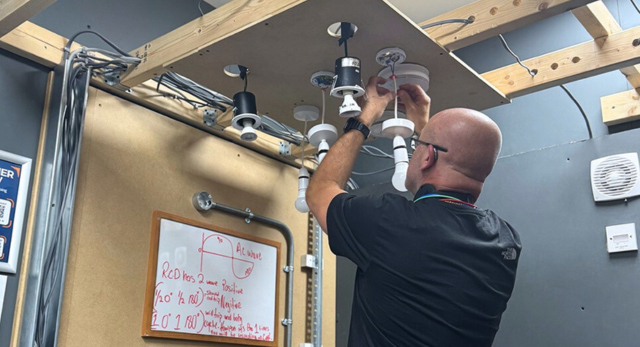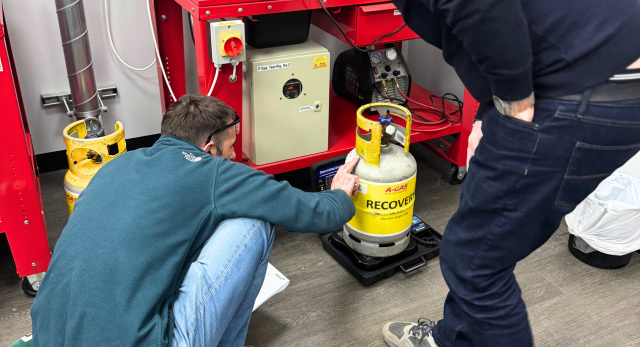Choosing between plumbing and electrical work depends on your interests, career goals, and job prospects. Plumbers focus on water systems, heating, and pipework, while electricians work with wiring, power systems, and installations. Both trades offer strong job security, good salaries, and opportunities for self-employment. If you enjoy problem-solving and hands-on work, either career can be rewarding. Consider training costs, working conditions, and long-term demand before deciding.
To be honest, a career in either trade will give you interesting and varied work day-to-day, plus the potential to grow and specialise, in years to come. In both these trades, there’s always something new to learn.
Skilled plumbers and electricians are in high demand, once qualified, you’ll always have work. So when it comes to deciding whether to be an electrician or a plumber it’s really a matter of weighing up the requirements for each, working out which best suits your personality and looking at what each trade offers in the future.
Let’s look at the life of an electrician first. If you are:
- Someone with initiative
- Interested in problem solving
- Thorough, with an eye for detail
- Good at maths
- Someone who likes working with tools and machinery
Then being an electrician could well be the job for you.
Is being an electrician future-proof?
It certainly is! The UK is relying more and more on renewable energy, in a drive to meet zero emission targets. Renewables and electricity run hand in hand so the demand for electricians is at an all time high.
Take electric vehicles for example, growth in demand means the need for EV charging points is skyrocketing. This is good news for electricians as the roll out is regulated and only qualified electricians can legally install the hardware. At-home charging points are becoming very popular and often when they are fitted, the domestic wiring system requires an update too, so there’s a real need for electricians with the appropriate skills. Once electric commercial vehicles, public transport and HGVs come into play, demand will be even higher.
The Government’s ambitious house building targets create more jobs for electricians and Boris’s commitment to ban the installation gas and oil boilers in new builds from 2025 will increase the demand for electricians even further. As Air Source and Ground Source heat pumps become the heating appliance of choice, the construction industry will be looking to qualified electricians with the relevant expertise to help keep pace with demand.
What does an electrician earn?
Recent figures from the Office for National Statistics say that the average salary for a domestic electrician is £32,805 a year. With the overall average salary set at £28,080, an electrician’s wage is not to be sniffed at. Plus, with further training in a specialist field, or for those who set up their own business, the rewards can be even higher.
How long does it take to train as an electrician?
It depends what you want to do. You can train to be a Domestic Electrical Installer in as little as four weeks, but this is a basic qualification and the electrical work you can do will be limited. Fast-track electrician courses can be useful for specific people who are looking to train and enter the industry quickly, but there are also so hidden risks associated with them. If you want to become fully qualified, you’ll need to achieve an NVQ Level 3 qualification which can take as long as three years. Like everything else, the more you put in, the more you get out, so we’d recommend taking your time and gaining some good practical experience on the way. Search online to find the best option for you.
Now, what about plumbing? The characteristics that make a good plumber are:
- Curiosity and an interest in how things work
- Physical fitness – it’s quite demanding work
- Dexterity and an enjoyment of hands-on tasks
- A logical approach to problem solving
- The ability to multi-task
Is working as a plumber future proof?
Plumbers are always in high demand, even in a recession. If your pipe bursts, what are you going to do?
Plumbers earn around the same amount as electricians, they’re amongst the highest paid contractors with salaries in the region of £32,000 a year.
Evolving technology keeps things interesting and it’s a satisfying job as you’re often helping to get people out of trouble!
Another plus for plumbers is career development. Once you’ve mastered plumbing, you can build on your existing skills and train to become a heating engineer or specialise in renewables – a plumbing qualification is the perfect grounding to move onto any of the heating technologies, including gas, air source heat pumps and solar thermal. You’ll never be bored.
How do you train to become a plumber?
We’ve recently launched a range of plumbing training packages for new entrants. Our most basic, Bronze package, is an ideal starting point, giving you a solid foundation in the trade in just six weeks. Then there are further options available in the shape of Silver, Gold and Platinum packages, where you dive deeper into the subject and gain a wider variety of skills to broaden your options for work on completion of the course. Have a look at the options available and if you’re not sure which is right for you, get in touch. We’d love to hear from you.









